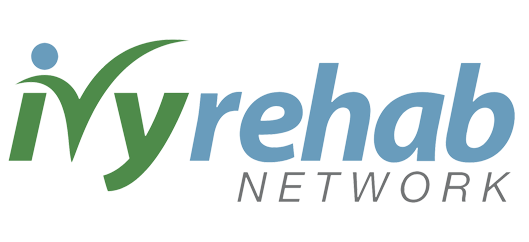Authors: Virend Somers, MD, PhD – Holly Geyer, MD
When to see a provider
If someone is struggling with bad sleep health or insomnia, they should see a healthcare provider when they have ongoing sleep problems that affect their daytime life and overall well-being. According to the American College of Physicians, chronic insomnia is defined as having trouble falling asleep, staying asleep, or waking up too early at least three times a week for three months, which causes significant distress or problems in important areas of life.
Here are some specific signs that indicate it’s time to seek medical help:
- Persistent Symptoms: If sleep problems continue even after trying good sleep habits, it’s important to get professional help.
- Daytime Impairment: When sleep difficulties lead to significant daytime issues like extreme sleepiness, tiredness, mood swings, or trouble concentrating.
- Other Health Issues: If insomnia is linked to other medical or mental health conditions, such as depression, anxiety, or chronic pain, that could make sleep problems worse.
- Impact on Daily Life: When sleep issues interfere with everyday activities, job performance, or relationships with others.
- Use of Sleep Aids: If someone is relying on over-the-counter or prescription sleep medications without seeing improvements in sleep quality.
Getting help early is very important because untreated insomnia can lead to serious health problems, including heart disease, metabolic disorders, and mental health issues.
What testing can be done?
Evaluating bad sleep health or insomnia involves using both personal feedback and scientific measurements.
Subjective Assessments:
- Self-Report Questionnaires: Tools like the Insomnia Severity Index (ISI) and the Pittsburgh Sleep Quality Index (PSQI) help assess how severe the insomnia is and how it affects daily life. The ISI is especially good at accurately identifying whether someone has insomnia or not.
- Sleep Diaries: Patients keep a record of their sleep habits in sleep diaries, noting when they go to bed, when they wake up, and any disturbances. This information can help identify patterns in their sleep.
Objective Assessments:
- STOP-BANG Questionnaire: This questionnaire screens for OSA risk by asking about snoring, daytime sleepiness, observed pauses in breathing, and high blood pressure.
- Polysomnography (PSG): This is the best method for diagnosing sleep disorders. It involves spending the night in a sleep lab where various bodily functions, such as brain waves and heart rate, are monitored.
- Actigraphy: Recommended by the American Academy of Sleep Medicine, actigraphy involves wearing a wrist device that tracks movement. This helps provide objective information about sleep patterns over time and can be used at home.
Home Sleep Apnea Testing (HSAT): For those suspected of having obstructive sleep apnea (OSA), this test can be done at home using portable devices that measure.
The role of medications
Medications are important for treating insomnia and poor sleep health when lifestyle interventions are not enough. Here’s a breakdown of the main types of medications used for insomnia:
Common Pharmacologic Agents:
- Melatonin: Melatonin is a natural substance made by the body to help induce sleep. It can also be purchased over the counter. It is not addictive and is often a first-line approach for people who struggle with sleep disorders when combined with lifestyle changes.
- Benzodiazepine Receptor Agonists (BZRAs): These include medications like zolpidem, eszopiclone, and zaleplon. They help people fall asleep and stay asleep but should only be used at the lowest dose for the shortest time possible because they can lead to dependence and other side effects.
- Dual Orexin Receptor Antagonists (DORAs): Examples include daridorexant, lemborexant, and suvorexant. These medications help people sleep by blocking wakefulness instead of just making them sleepy. They are effective for both falling asleep and staying asleep and have a lower risk of withdrawal effects.
- Melatonin Receptor Agonists: Ramelteon is a medication that helps with falling asleep and is generally well-tolerated, making it good for long-term use.
- Low-Dose Doxepin: This is a type of tricyclic antidepressant that works well for people who have trouble staying asleep and has fewer side effects when taken at low doses.
Other Considerations:
- Benzodiazepines: These are usually not recommended because they have a high risk of abuse and can cause serious side effects, especially in older adults.
- Off-Label Medications: Some doctors may prescribe medications like trazodone or other sedating antidepressants, but these don’t always have strong evidence supporting their effectiveness and can have side effects.
Taking care of a loved one with Sleep Health
Being a partner to someone with sleep health problems can be challenging in several ways. Sleep disturbances, such as loud snoring or frequent awakenings, can disrupt the partner’s sleep quality, leading to fatigue and irritability. Additionally, the emotional toll can include increased anxiety and stress, as the partner may feel helpless or frustrated about their loved one’s condition. This dynamic can strain the relationship, resulting in conflicts and reduced satisfaction, as both partners may struggle with the effects of poor sleep and the emotional fallout that comes with it.
There are several online services and resources that can help partners of people with sleep problems.
Sleepio is a program that helps improve sleep using techniques using cognitive behavioral therapy. It has a community where users can talk to experts and share experiences with others. This can help both patients and their partners feel less alone and get useful advice.
The American Academy of Sleep Medicine supports using telemedicine, which allows doctors to help patients with sleep issues through video calls and online chats. This helps partners learn more about sleep disorders and how to deal with them.
Internet-Delivered Cognitive Behavioral Therapy (iCBT) is another helpful online tool. It can improve sleep quality and help reduce insomnia for both the patient and their partner.
Resources
https://www.mayoclinichealthsystem.org/topics/sleep
https://www.mayoclinic.org/departments-centers/sleep-medicine/sections/overview/ovc-20407454
Include Mayo Clinic Books on the topic, national society guidelines for patients, Mayoclinic.org + 1 or 2 non-Mayo websites
© 1998-2024 Mayo Foundation for Medical Education and Research (MFMER). All rights reserved

Sign up for Updates
To stay up to date please provide your email address.
-
By giving us your email you are opting-in to receive news and promotions
Sign up for Updates
To stay up to date please provide your email address.
-
By giving us your email you are opting-in to receive news and promotions






